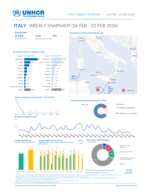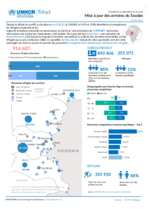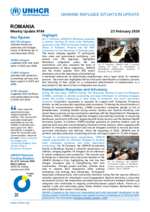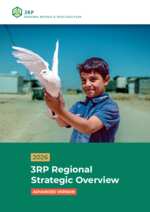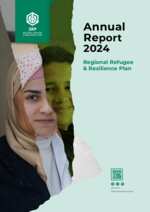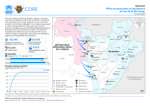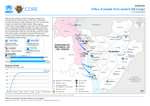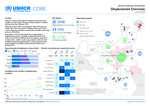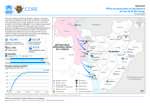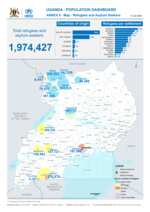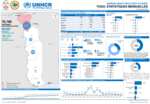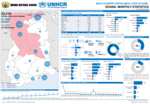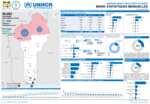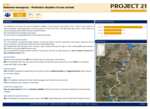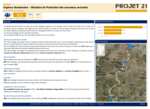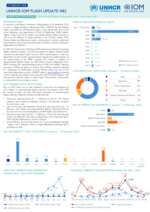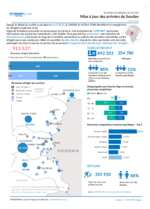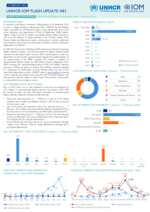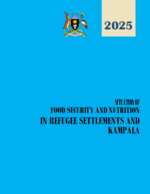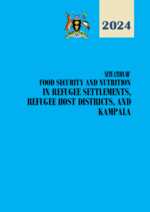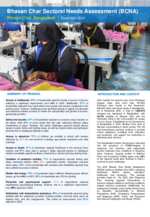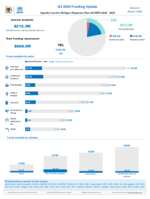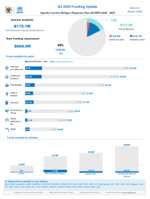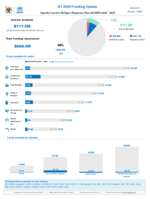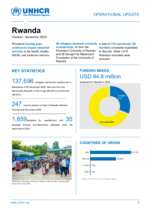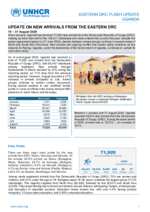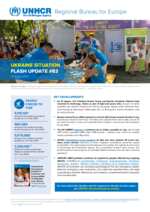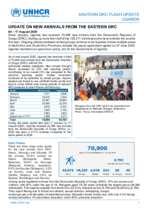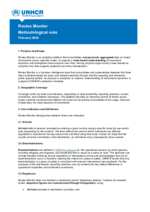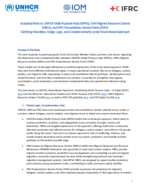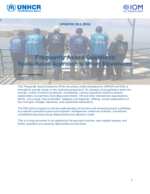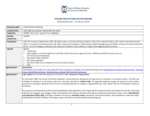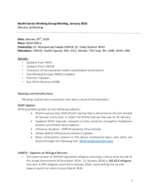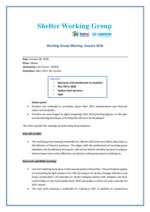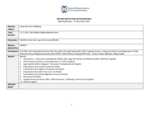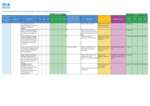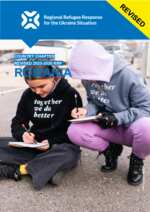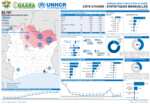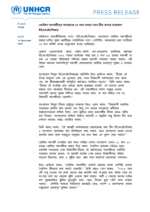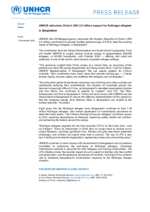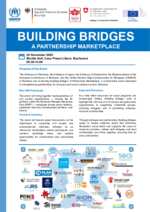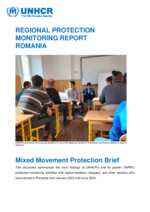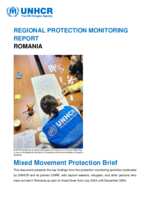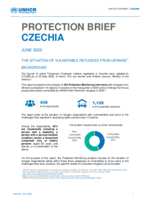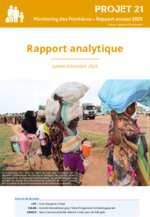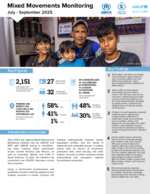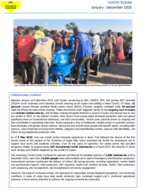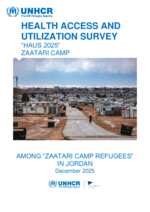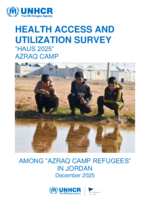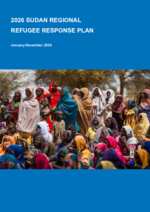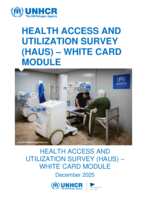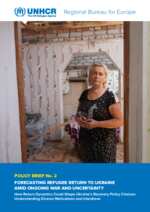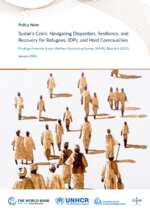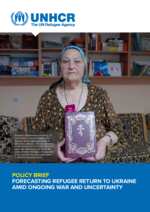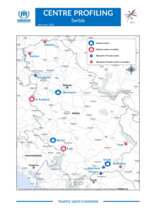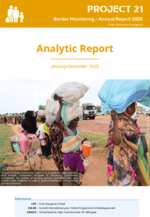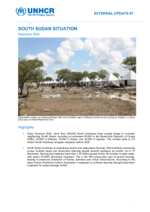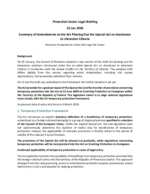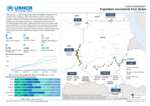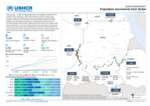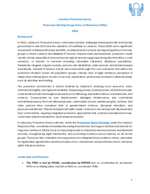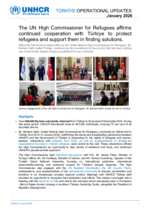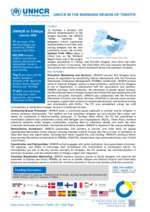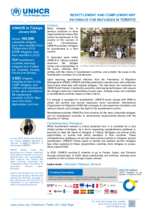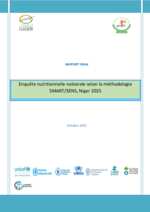Documents
-
UNHCR HQ
The Office of the United Nations High Commissioner for Refugees (UNHCR), also known as The UN Refugee Agency is a United Nations agency mandated to protect and support refugees at the request of a government or the UN itself and assists in their voluntary repatriation, local integration or resettlement to a third country. Its headquarters are in Geneva, Switzerland and is a member of the United Nations Development Group.[1] The UNHCR has won two Nobel Peace Prizes, once in 1954 and again in 1981
Address United Nations High Commissioner for Refugees
Case Postale 2500
CH-1211 Genève 2 Dépôt
Suisse.Website unhcr.org Contacts
-
Full Name The UN Refugee Agency
Documents
-
-
UNHCR - Egypt
Address 17th Mekka El Mokrama Street
3rd proximity, 7th District
Behind 6th of October Club
6 October City
EgyptWebsite www.unhcr.org/pages/49e486356.html Contacts
-
Full Name Email areca@unhcr.org
Documents
-
-
UNHCR - Jordan
Address Khalda,
AmmanWebsite www.unhcr.jo Contacts
-
Role Senior Inter-Agency Coordination Officer Full Name Yukiko Koyama Email koyama@unhcr.org
Documents
-
-
UNHCR - Kenya RSH
The Office of the United Nations High Commissioner for Refugees (UNHCR), also known as The UN Refugee Agency is a United Nations agency mandated to protect and support refugees at the request of a government or the UN itself and assists in their voluntary repatriation, local integration or resettlement to a third country. Its headquarters are in Geneva, Switzerland and is a member of the United Nations Development Group.[1] The UNHCR has won two Nobel Peace Prizes, once in 1954 and again in 1981.
Address Lion Place, Waiyaki Way
(Next to St. Mark Church)
Westlands
Nairobi
35 Rhapta Road,
Westlands
Nairobi
Bole Road,Wereda 1, Kebele 23
House No. 1255/01-02
Addis AbabaWebsite www.unhcr.org Contacts
-
Full Name The UN Refugee Agency Email KENRSRIH@unhcr.org
Documents
-
-
UNHCR - Lebanon
UNHCR has worked in Lebanon for 50 years. The Office has both country and regional responsibilities. Prior the arrival of Syrian refugees in the spring of 2011, the Office was directed primarily at protecting and assisting some 10,000 refugees and asylum-seekers, most of whom were from Iraq. Since then, in addition to its Beirut Office, UNHCR has established a presence in the North, Akkar, and the Bekaa to protect and respond to the needs of displaced Syrians in Lebanon. Working alongside the government of Lebanon, notably the High Relief Commission, the Ministry of Social Affairs and municipalities, UNHCR has worked to ensure a consolidated and coordinated inter-agency response, engaging fellow UN agencies and local and international non-governmental partners. UNHCR teams in the north and the Bekaa, with support from the Beirut Office, work with over 30 partner staff on the ground to receive refugees, assess needs, and meet protection, food, shelter, education, health and psycho-social needs. The coordinated response is one that also seeks to support host families and communities who have opened their doors to refugees since the beginning of the influx. The Office has invested in strengthening the capacities of the Government, local partners, and the local community through technical and material support and the establishment of local projects to benefit refugees and hosting communities.
Address Ramlet El-Baida - Beirut Dr.Philippe Hitti Street P.O. Box 11-7332
LebanonWebsite www.unhcr.org/ Contacts
-
Full Name Operator
Documents
-
-
UNHCR - Myanmar
In line with the implementation of the UN Strategic Framework for Myanmar (2012-2015) and its leadership of the national protection working group, UNHCR will address a range of issues relating to statelessness and displacement. It will advocate for the Government to grant citizenship to affected populations, recognize its responsibilities towards communities affected by displacement, and lift restrictive legal and administrative practices. UNHCR will continue its efforts to enhance and deepen dialogue with the new Government in 2013, while also strengthening partnerships with civil-society groups, academic institutions and local and international NGOs. It will work with these groups to improve conditions for communities affected by displacement, returnees and populations without citizenship. Protection monitoring, advocacy and capacity building will be complemented by improvements in basic services such as water, sanitation, health and education. Special emphasis will be placed on strengthening community leadership structures, peaceful coexistence between ethnic groups, and the participation of girls and women in decision-making.
Address 287, Pyay Road, Myaynigone, Sanchaung Township, Yangon, Myanmar Website www.unhcr.org/pages/49e4877d6.html Contacts
-
Full Name Email myaya@unhcr.org
Documents
-
-
UNHCR - Niger
LE REPRESENTANT DE L'UNHCR AU NIGER
Numéro de téléphone 227 2075 2064 Email NGRNI@UNHCR.ORG Address BP 12 201 NIAMEY-NIGER, Niamey, Niger Website http://www.unhcr.org/niger.html Documents
-
UNHCR - South Sudan
The Office of the United Nations High Commissioner for Refugees (UNHCR), also known as The UN Refugee Agency is a United Nations agency mandated to protect and support refugees at the request of a government or the UN itself and assists in their voluntary repatriation, local integration or resettlement to a third country. Its headquarters are in Geneva, Switzerland and is a member of the United Nations Development Group.[1] The UNHCR has won two Nobel Peace Prizes, once in 1954 and again in 1981
Address Ministries Road, Buluk Area, Juba, South Sudan Website www.unhcr.org Contacts
-
Full Name United Nations High Commissioner for Refugees Email SUDJU@unhcr.org
Documents
-
-
UNHCR - Spain
-
UNHCR - Tanzania
Documents
-
UNHCR - Thailand
The Thai government invited UNHCR to begin working in Thailand in 1975 when hundreds of thousands of refugees fled to Thailand from Cambodia, Laos and Vietnam, in what became known as the Indochinese refugee crisis. More than 1.3 million refugees have been hosted by Thailand over the years. Today there are about 88,000 registered refugees and some 8,000 asylum seekers in Thailand. Most refugees are ethnic minorities from Myanmar, mainly Karen and Karenni, who live in nine camps in four provinces along the Thai-Myanmar border. The Thai government runs all camps, with most assistance provided by non-governmental organisations (NGOs), while UNHCR focuses on protection activities and programmes to ensure that refugees live in safety and relative security within the camp
Website www.unhcr.or.th/ Documents
-
UNHCR - Turkey
Website www.unhcr.org.tr Documents
-
UNHCR Regional Bureau for the Middle East & North Africa in Amman
Documents
-
UNHCR RRC Yemen
-
United Nations High Commissioner For Refugees Iraq

